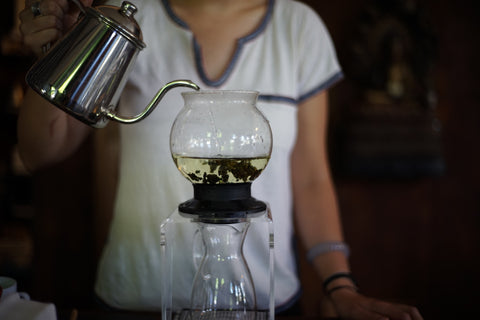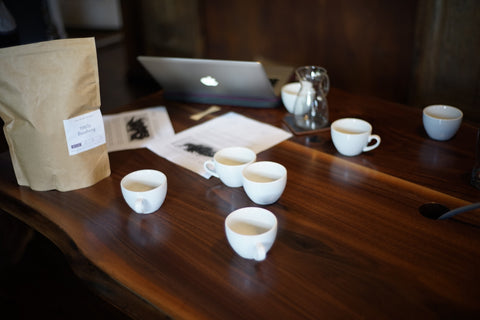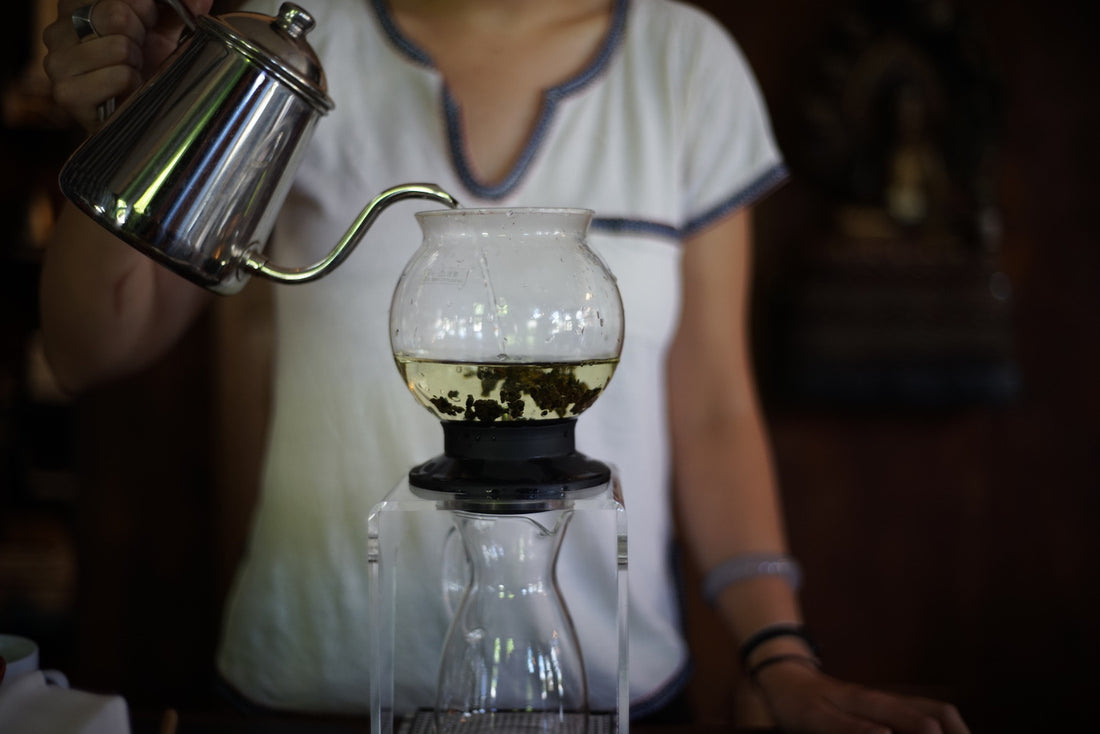Like cat people and dog people, society tends to diametrically oppose coffee people and tea people as if it were impossible to enjoy both. Truth be told, before I became more involved in the coffee world, I was more than happy to start my day with a cup of coffee and subsequently sip on multiple mugs of tea throughout the day to nurse my caffeine addiction. However, I recognize that most people in the coffee are siloed in their own specific world of caffeine without ever being exposed to the beauty and variety of either stimulant.

The amount of care that Song Tea puts into sourcing expertly and lovingly crafted teas was evident upon my first whiff of a dried teas and became even clearer after I had a chance to sit down and talk with Peter Luong, Song Tea’s founder.
We’re excited to formally announce a new lineup of teas from Song that we’ve been slowly rolling out. To explore the new teas, we took it upon ourselves to have a little change of pace and throw a tea party to taste Song’s newest offerings for us. We’ve shared our thoughts on the individual teas - one red, one white, and two oolongs - below. I refrained from sharing Song’s tasting notes with the team before we formed our own opinions about the teas. All teas are currently available at Sump or will be on the bar soon.

Old Tree Yunnan Red
Origin: Yunnan, China
Harvested: April 2015
Red Tea
Song’s notes: lychee, red plum, sweet vermouth
Scott: This tastes to me like I was sick and I put butter in my tea. Rich, creamy and oxidized. It reminds me of convalescing - not like you’re getting old, but like you’re a child and someone cares that you’re sick. The tea equivalent to a very well-executed cappuccino.
Marz: It smells like it’s going to be dry, but it’s really round.
Dylan: I’m getting notes of coconut and pear.
Connor: Lots of soft, earthy moss.
Jordan: This is the darkest tea we’ve offered since I’ve been here - it’s sweet and earthy. Exactly what I think of when I think of a tea I want to curl up with while I read a book.
Huang Meigui
Origin: Fujian, China
Harvested: April 2015
Experimental white tea - applied traditional crafting methods to new tea varieties
Song’s note: Rose, orgeat, honey - Huang Meigui means “yellow rose” in Mandarin
Scott: More refined sugar sweetness, less so than the first tea we tasted. I get a stonefruit - white pear or peach - very light, not any citrus. Almost like the impression you get from a canned pear half. First harvest honey.
Marz: Maybe a vanilla note?
Connor: This is more dry than the others.
Jordan: Very buttery and creamy. Upon later brews of the tea, I’ve picked up a lot of effervescence and light citrus, almost Sprite-like qualities to the tea.
Lishan Orchid
Origin: Taiwan
Harvested: November 2015
Winter oolong - leaves grown through late fall and picked before winter
Song’s notes: orchid, butter mochi cake, pine
Scott: I’m getting a lot of botanicals, a lot of floral - lavender. Very perfumey - lots of esters - and clean and drier than other teas.
Marz: I’m picking up a lot of the orchid, but in the nose, there’s a lot of butter there.
Jordan: This one smells like fresh sweet corn to me, perhaps a product of my childhood.
Dylan: This one smells like corn and butter. (Jordan’s note: Dylan said this after joining the conversation after I’d already made similar comments. No one else picked up corn though.)
Sara is known to especially love this tea and make herself second steeps of this tea after customers have already ordered it.
1960s Baozhong
Origin: Wenshan, Taiwan
Harvested 50 years ago, though the cultivar no longer exists today. This tea has been carefully aging in ceramic urns after the producer set the tea aside in the 1960s.
Oolong, with characteristics of a light pu-erh
Song’s notes: earth, mint, plum
Scott: Smells like vegetal and earthy. The second steep of this one is more botanical.
Dylan: This one’s super green. It smells like an antique.
Matt: This tea was something else the first time we tried it, but I can totally get behind it the second time around. I’m picking up those plum notes, and get a lot more clay notes out of this - not in a bad way though. I’d recommend this to people who are really into scotch. I think that the finish is really what’s up.
Jordan: Dried, it smells like unearthing buried treasure - there’s so much expectation that was surrounding this tea. Once brewed and hot, it does smells like vegetal and earthy, and the taste is smoother, sweeter, still earthy, but complex.

